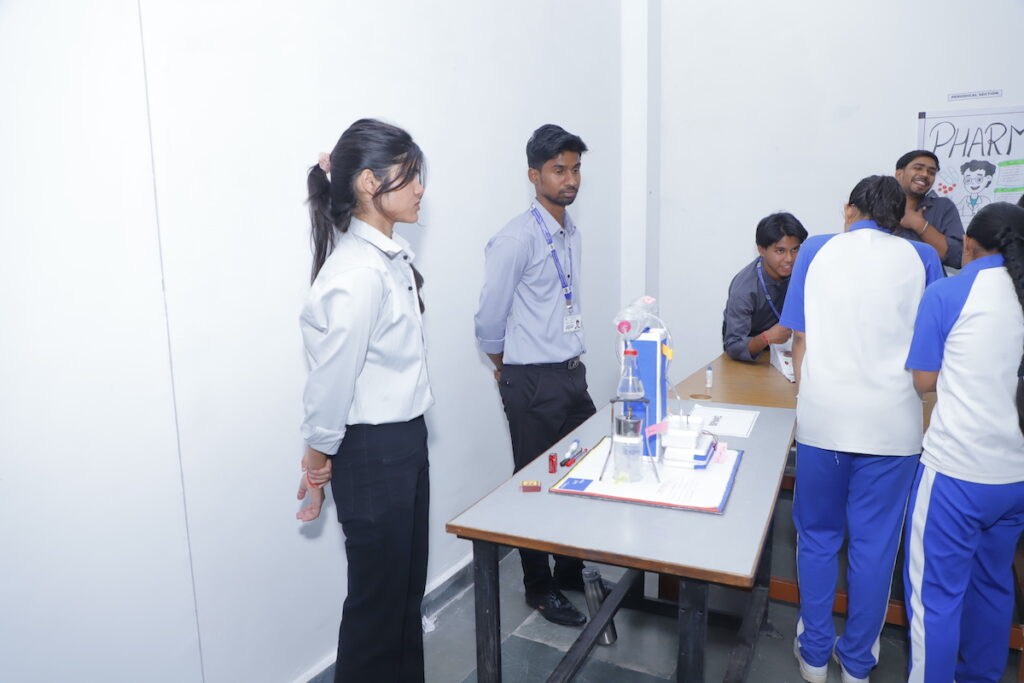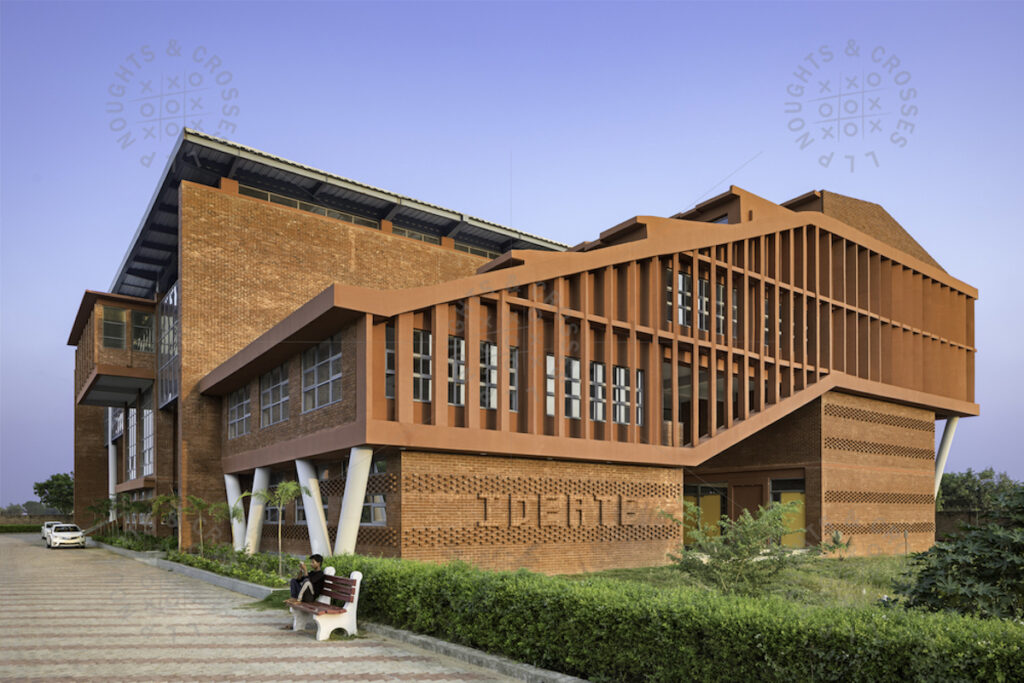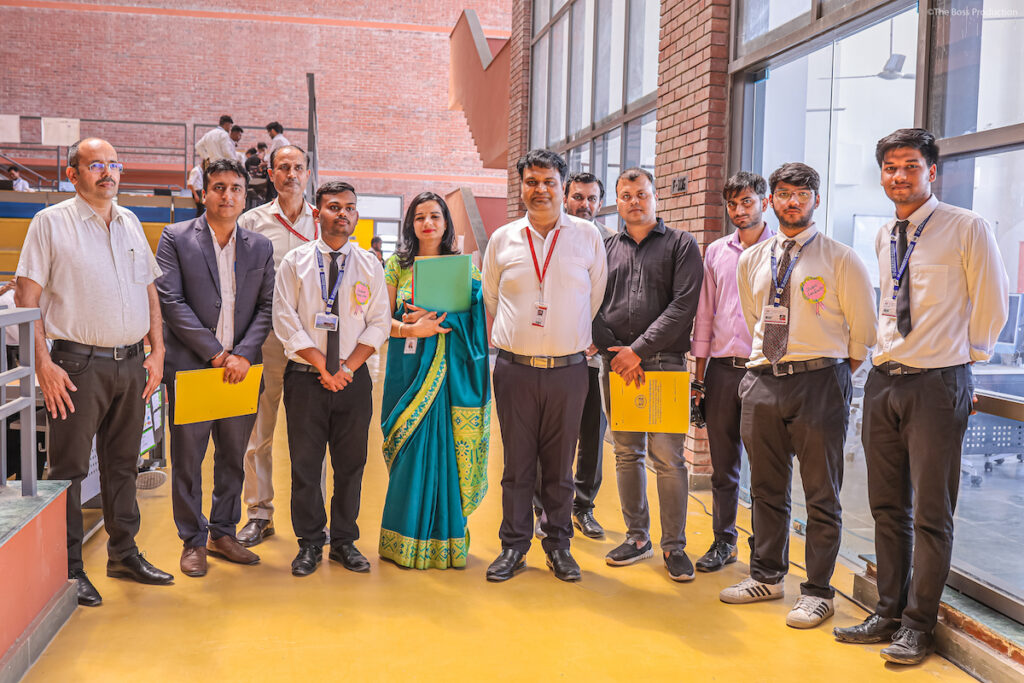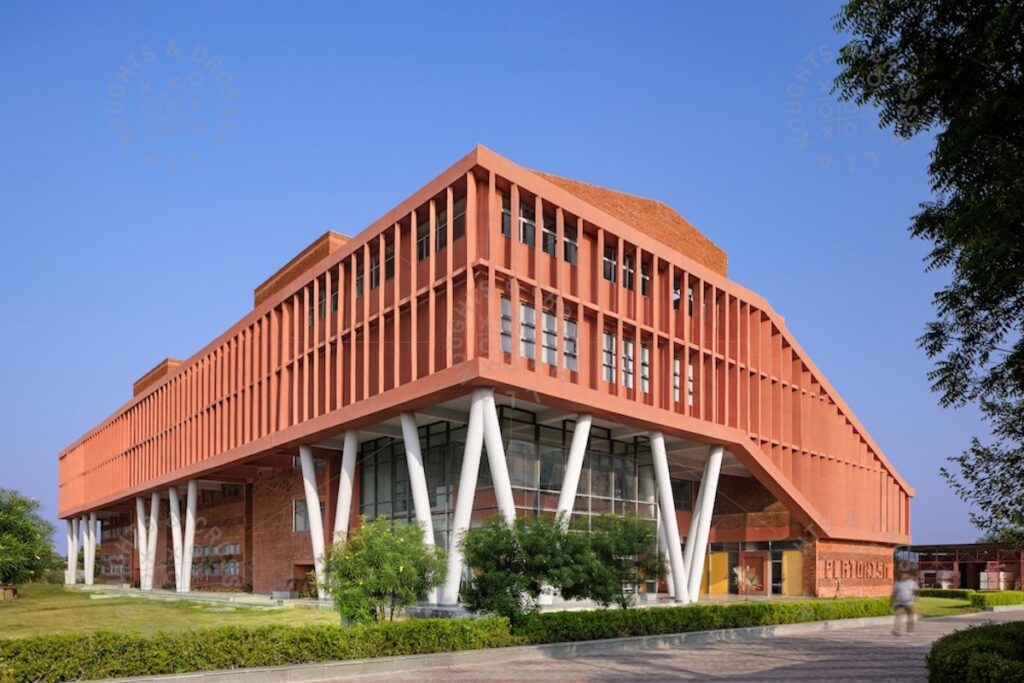Diploma in Pharmacy Eligibility
Diploma in Pharmacy Eligibility requires candidates to have completed their 10+2 education with a focus on Science subjects, particularly Physics, Chemistry, and Biology/Mathematics.
To meet the Diploma in Pharmacy Eligibility, students must secure at least 50% aggregate marks, though the exact percentage may vary by institution.
Some institutions may also require candidates to pass entrance exams as part of the Diploma in Pharmacy Eligibility criteria.
This program is tailored for individuals seeking to build a career in the pharmaceutical industry, with meeting the Diploma in Pharmacy Eligibility being the crucial first step toward enrolling in this course.
Some of the most opted courses in India and St. Andrews college or different Engineering college or Management colleges are as follows:-
- Btech
- Btech CSE
- Btech ETCE
- MTech
- BCA
- BBA
- MBA
- MCA
- DPharma – St. Andrews College of Pharmacy
- BPharma – St. Andrews College of Pharmacy
- BArch – St. Andrews College of Architecture
Overview of Diploma in Pharmacy

A Diploma in Pharmacy (D.Pharm) is a short-term program aimed at providing foundational knowledge and skills in pharmaceutical science. Spanning two years and divided into four semesters, it covers the basics of pharmaceutical science. By meeting the Diploma in Pharmacy Eligibility criteria, students can enroll in this course, which prepares them for careers in the pharmaceutical industry, retail pharmacy, or as a pathway to further studies in pharmacy.
Key Features of D.Pharm:
Duration:
2 years (4 semesters).
Eligibility:
Minimum qualification required is 10+2 with Science (Physics, Chemistry, Biology/Mathematics) from a recognized board.
Some institutions may have an entrance exam or merit-based selection process.
Curriculum:
Year 1:
Pharmaceutical Chemistry
Pharmacognosy (study of medicinal plants)
Pharmaceutics (preparation of drugs)
Human Anatomy & Physiology
Health Education & Community Pharmacy
Year 2:
Pharmacology & Toxicology
Hospital & Clinical Pharmacy
Pharmaceutical Jurisprudence (laws related to pharmacy)
Drug Store & Business Management
Biochemistry & Clinical Pathology
Practical Training:
During the second year, students undergo practical training in hospitals, clinics, or community pharmacies to gain hands-on experience essential for the pharmacy profession.
Career Opportunities:
Retail Pharmacist: Dispensing medications in community pharmacies.
Hospital Pharmacist: Managing pharmacy departments in hospitals.
Pharmaceutical Sales & Marketing: Working as a sales representative or marketing professional in the pharmaceutical industry.
Pharmaceutical Manufacturing: Involvement in the production of drugs and medications.
Further Studies: Graduates can pursue a Bachelor of Pharmacy (B.Pharm) for more advanced career opportunities.
Regulatory Body:
The Pharmacy Council of India (PCI) regulates pharmacy education in India, ensuring the standardization and quality of the curriculum.
Licensing:
After completing D.Pharm, graduates must register with the State Pharmacy Council to practice as a licensed pharmacist in India.
Advantages:
Quick Entry into the Workforce: With just two years of study, students can quickly start their careers in the pharmaceutical field.
Foundation for Further Studies: D.Pharm graduates can easily transition to higher studies like B.Pharm or Pharm.D, enhancing their career prospects.
Diverse Career Options: The diploma opens up various opportunities in retail, hospital pharmacy, pharmaceutical industry, and more.
Eligibility Criteria for D.Pharma

The Diploma in Pharmacy Eligibility criteria for enrolling in a Diploma in Pharmacy (D.Pharm) program typically include the following requirements:
Educational Qualifications:
Minimum Qualification: Candidates must have completed their 10+2 (Higher Secondary) education from a recognized board.
Mandatory Subjects: The 10+2 curriculum should include Science subjects, specifically:
- Physics
- Chemistry
- Biology or Mathematics (some institutions accept either subject)
Minimum Marks: Many institutions require candidates to have a minimum aggregate percentage in these subjects, often around 45%-50%. However, this percentage can vary depending on the institution and category (general or reserved).
Age Limit:
Minimum Age: The candidate should be at least 17 years old at the time of admission or by the end of the year of admission.
Entrance Exams (if applicable):
Some institutions or states may require candidates to pass an entrance exam specifically for admission to the D.Pharm program. The criteria and format for these exams can vary, so it’s important to check with the specific institution or state pharmacy council.
Nationality:
Indian Citizenship: Most institutions require the candidate to be an Indian citizen. However, some may allow Non-Resident Indians (NRIs) or foreign nationals to apply, subject to specific regulations.
Medical Fitness:
Some institutions may require candidates to provide proof of medical fitness as part of the admission process.
Diploma in Pharmacy Admission Process

The admission process for a Diploma in Pharmacy (D.Pharm) generally involves several steps, with variations depending on the institution or state. Meeting the Diploma in Pharmacy Eligibility is the first and most important requirement in this process.
Here is a general overview of the process:
Research and Selection of Colleges:
- Identify Institutions: Start by researching the colleges or universities that offer the D.Pharm program. Consider factors like location, reputation, accreditation, facilities, and fee structure.
- Check Eligibility: Ensure that you meet the eligibility criteria (educational qualifications, age, etc.) specified by the institutions you are interested in.
Application Process:
- Application Form: Obtain the application form from the college’s official website or admission office. Some institutions may offer online applications, while others might require physical submission.
- Fill the Form: Ensure you carefully complete the application form with accurate details, including your personal information, academic qualifications, and any other required information. Make sure that all qualifications meeting the Diploma in Pharmacy Eligibility are clearly stated and properly verified.
- Document Submission: Along with the application form, submit the necessary documents such as:
- 10th and 12th-grade mark sheets and certificates
- Proof of age (birth certificate or school leaving certificate)
- Caste certificate (if applicable)
- Passport-sized photographs
- Entrance exam scorecard (if applicable)
- Application Fee: Pay the application fee as per the institution’s guidelines. This fee is usually non-refundable.
Entrance Exams (if applicable):
- Appear for Entrance Exam: Some colleges or states may require candidates to take an entrance exam. The exam typically tests knowledge in subjects like Physics, Chemistry, Biology/Mathematics, and English.
- Merit List: Based on the entrance exam scores and/or 10+2 marks, institutions may prepare a merit list of candidates eligible for admission.
Counseling Process (if applicable):
- Counseling Sessions: In cases where there is an entrance exam or centralized admission process, candidates might need to participate in counseling sessions. During counseling, candidates select their preferred colleges based on their rank and availability of seats.
- Seat Allotment: Seats are allotted to candidates after counseling based on their rank, preferences, and availability.
Admission Confirmation:
- Provisional Admission: Once a seat is allotted, candidates may receive a provisional admission letter. They need to confirm their acceptance of the seat by paying a portion of the tuition fee.
- Document Verification: Candidates must visit the college for a document verification process, where original documents are checked against the submitted copies.
- Final Admission: After successful document verification and fee payment, the final admission is confirmed. Students receive an official admission letter.
Commencement of Classes:
- Orientation: Some colleges may conduct an orientation program for new students to familiarize them with the course structure, faculty, and facilities.
- Start of Academic Session: The academic session for the D.Pharm program typically begins soon after the admission process is completed.
Diploma in Pharmacy Course Content

The Diploma in Pharmacy (D.Pharm) is a foundational course that provides students with the basic knowledge and skills required for pharmacy practice. The course is typically spread over two years, and the curriculum is designed to cover various aspects of pharmaceutical sciences.
Here is a general overview of the course content:
Year 1:
Pharmaceutics I: Introduction to different dosage forms, Metrology and prescription writing, Pharmaceutical calculations, Pharmaceutical dispensing and compounding
Pharmaceutical Chemistry I: Basic concepts of chemistry related to pharmacy, Structure and properties of organic and inorganic compounds, Analysis of pharmaceuticals
Pharmacognosy: Study of medicinal plants, Identification and extraction of active principles, Uses of natural drugs and phytopharmaceuticals
Biochemistry and Clinical Pathology: Basics of biochemistry related to human body functions, Enzymes, proteins, and metabolic pathways, Laboratory tests for clinical pathology
Human Anatomy and Physiology:, Structure and functions of human body systems, Cell biology, tissues, and organs, Physiological processes and their regulation
Health Education and Community Pharmacy: Concepts of health and disease, Community health practices, Roles of pharmacists in public health
Year 2:
Pharmaceutics II: Advanced concepts in formulation and development of dosage forms, Pharmaceutical technology and good manufacturing practices (GMP), Packaging and storage of pharmaceutical products
Pharmaceutical Chemistry II: Medicinal chemistry, including drug synthesis and chemical interactions, Pharmaceutical analysis and quality control techniques, Spectroscopy and chromatography
Pharmacology and Toxicology: Basic principles of pharmacology, Mechanisms of drug action, therapeutic uses, and side effects, Introduction to toxicology and poisoning management
Pharmaceutical Jurisprudence: Legal aspects of pharmacy practice, Pharmacy Act, Drugs and Cosmetics Act, and other relevant laws, Ethics in pharmacy and professional responsibilities
Drug Store and Business Management: Principles of management in pharmacy practice, Inventory control, purchasing, and pricing, Financial management and accounting in pharmacies
Hospital and Clinical Pharmacy: Role of pharmacists in hospital settings, Drug distribution systems and patient care, Clinical pharmacy services, including drug interactions and patient counseling
Practical Training:
In addition to theoretical knowledge, students are required to undergo practical training in various pharmacy disciplines. This includes working in a hospital or community pharmacy to gain hands-on experience in dispensing, patient care, and pharmacy management.
Career Opportunities and Salary Package after D.Pharma

After completing a Diploma in Pharmacy (D.Pharma), graduates can explore various career opportunities in the pharmaceutical and healthcare industries.
Here’s an overview of potential career paths along with the expected salary packages:
Community Pharmacist
- Role: Dispensing medications, patient counseling, and managing retail pharmacy operations.
- Salary Package: ₹2.5 to ₹4 lakhs per annum.
- Growth Prospects: Opportunity to own or manage a pharmacy, expand services, or pursue further education (B.Pharm).
Hospital Pharmacist
- Role: Managing the pharmacy in a hospital, ensuring safe medication use, and collaborating with healthcare teams.
- Salary Package: ₹3 to ₹5 lakhs per annum.
- Growth Prospects: Specialization in clinical pharmacy or hospital administration.
Pharmaceutical Sales Representative
- Role: Promoting and selling pharmaceutical products to healthcare providers.
- Salary Package: ₹3 to ₹6 lakhs per annum (including incentives).
- Growth Prospects: Progression to senior sales roles, area sales manager, or marketing manager.
Pharmacy Technician
- Role: Assisting pharmacists with dispensing, inventory management, and administrative tasks.
- Salary Package: ₹2 to ₹3.5 lakhs per annum.
- Growth Prospects: Advancement to pharmacist roles, specialization, or management.
Production Executive
- Role: Overseeing pharmaceutical manufacturing processes and ensuring quality control.
- Salary Package: ₹3 to ₹5 lakhs per annum.
- Growth Prospects: Opportunities to advance to production manager or quality assurance roles.
Quality Control/Quality Assurance Analyst
- Role: Monitoring the quality of pharmaceutical products and ensuring compliance with standards.
- Salary Package: ₹3.5 to ₹6 lakhs per annum.
- Growth Prospects: Potential to advance to senior QA roles or regulatory affairs.
Medical Representative
- Role: Liaison between pharmaceutical companies and healthcare providers, promoting products and developing relationships.
- Salary Package: ₹3 to ₹6 lakhs per annum (including incentives).
- Growth Prospects: Opportunities for career advancement in sales and marketing.
Regulatory Affairs Executive
- Role: Ensuring compliance with regulatory requirements and managing product registrations.
- Salary Package: ₹4 to ₹6.5 lakhs per annum.
- Growth Prospects: Senior roles in regulatory affairs, compliance, or government relations.
Entrepreneur
- Role: Starting and managing a pharmacy or pharmaceutical distribution business.
- Salary Package: Varies based on business success; potential earnings can be significantly higher.
- Growth Prospects: Expansion of business, diversification into other healthcare services.
Health Inspector
- Role: Inspecting healthcare facilities and ensuring compliance with health regulations.
- Salary Package: ₹3 to ₹5 lakhs per annum.
- Growth Prospects: Senior inspector roles or specialization in public health.
Further Education (B.Pharm)
- Role: Pursuing higher education to open up advanced career opportunities.
- Salary Package: Initial salary after B.Pharm can range from ₹4 to ₹7 lakhs per annum.
- Growth Prospects: Higher positions in pharmaceutical companies, academia, or research.
Clinical Research Associate
- Role: Monitoring clinical trials, ensuring compliance with protocols, and managing data.
- Salary Package: ₹3.5 to ₹6.5 lakhs per annum.
- Growth Prospects: Senior roles in clinical research, project management.
Pharmacovigilance Associate
- Role: Monitoring drug safety and reporting adverse effects.
- Salary Package: ₹4 to ₹7 lakhs per annum.
- Growth Prospects: Higher roles in drug safety and regulatory compliance.
Consultant Pharmacist
- Role: Providing expert advice on medication use and management.
- Salary Package: ₹4 to ₹6 lakhs per annum.
- Growth Prospects: Senior consulting roles or specialization in areas like geriatrics or oncology.
Top Diploma in Pharmacy Colleges

Here are some of the top colleges in India offering Diploma in Pharmacy (D.Pharm) programs:
St. Andrews College of Pharmacy (SACP), Gurgaon
- Location: Gurgaon
- Notable Features: Renowned for its pharmacy programs, excellent faculty, and well-equipped laboratories.
- Affiliation: PCI, HSBTE
Delhi Institute of Pharmaceutical Sciences and Research (DIPSAR)
- Location: New Delhi
- Notable Features: Offers high-quality education in pharmacy with strong industry connections.
- Affiliation: University of Delhi
- Accreditation: AICTE
Poona College of Pharmacy, Bharati Vidyapeeth University
- Location: Pune, Maharashtra
- Notable Features: Offers a comprehensive D.Pharm program with a focus on practical training.
- Affiliation: Bharati Vidyapeeth University
- Accreditation: AICTE, PCI
Madras Medical College (MMC), Chennai
- Location: Chennai, Tamil Nadu
- Notable Features: One of the oldest and most prestigious institutions in India with a strong pharmacy department.
- Affiliation: Tamil Nadu Dr. M.G.R. Medical University
- Accreditation: AICTE, PCI
Government College of Pharmacy, Bengaluru
- Location: Bengaluru, Karnataka
- Notable Features: Known for its experienced faculty and excellent infrastructure.
- Affiliation: Rajiv Gandhi University of Health Sciences
- Accreditation: AICTE, PCI
L.M. College of Pharmacy, Ahmedabad
- Location: Ahmedabad, Gujarat
- Notable Features: Offers state-of-the-art facilities and a strong emphasis on research.
- Affiliation: Gujarat Technological University
- Accreditation: AICTE, PCI
Government Pharmacy College, Bangalore
- Location: Bengaluru, Karnataka
- Notable Features: Known for its rigorous academic curriculum and experienced faculty.
- Affiliation: Rajiv Gandhi University of Health Sciences
- Accreditation: AICTE, PCI
Institute of Chemical Technology (ICT), Mumbai
- Location: Mumbai, Maharashtra
- Notable Features: Known for its advanced research facilities and strong industry ties.
- Affiliation: Deemed University
- Accreditation: AICTE, PCI
JSS College of Pharmacy, Ooty
- Location: Ooty, Tamil Nadu
- Notable Features: Provides an excellent environment for learning with strong academic support.
- Affiliation: JSS Academy of Higher Education & Research
- Accreditation: AICTE, PCI
Goa College of Pharmacy, Panaji
- Location: Panaji, Goa
- Notable Features: Known for its quality education and strong placement record.
- Affiliation: Goa University
- Accreditation: AICTE, PCI
Internships and Placement Opportunities

Internships and placement opportunities for D.Pharma (Diploma in Pharmacy) students are crucial aspects of their education and career development.
Here’s a breakdown of what you can expect:
Internships:
- Community Pharmacy Internships: Many D.Pharma students intern at local pharmacies or chemist shops, gaining hands-on training in dispensing medications, understanding prescriptions, and patient counseling. This experience is valuable for those seeking a registered pharmacy qualification, as it provides practical skills essential for their future careers.
- Hospital Pharmacy Internships: Some students get the opportunity to intern in hospital pharmacies, where they gain experience in handling hospital drug inventories, preparing medications, and working closely with healthcare professionals.
- Industrial Pharmacy Internships: Internships in pharmaceutical companies provide students with valuable insights into drug discovery, manufacturing, quality control, and regulatory affairs.
- Research and Development: For those interested in the research side of pharmacy, internships in R&D departments of pharmaceutical companies or research institutions can be valuable.
- Government Internships: Some students may intern with government health departments or public health initiatives, gaining experience in public health management and policy implementation.
Placement Opportunities:
- Retail Pharmacy Chains: After completing D.Pharma, many students find placement opportunities in large retail pharmacy chains like Apollo Pharmacy, MedPlus, etc.
- Hospitals and Clinics: Hospitals often recruit D.Pharma graduates for their in-house pharmacies. Roles include dispensing medications, managing pharmacy operations, and patient counseling.
- Pharmaceutical Companies: D.Pharma graduates can work in various roles such as sales representatives, quality control, production assistants, or in pharmaceutical marketing.
- Government Sector: Opportunities are available in government-run hospitals, health centers, and regulatory bodies like the Drug Control Department.
- Entrepreneurship: Many D.Pharma graduates opt to start their own pharmacy stores, which can be a lucrative career option.
Further Education:
- Bachelor of Pharmacy (B.Pharm): Some students choose to continue their education by pursuing a B.Pharm degree, which can open up more advanced career opportunities in the pharmaceutical industries.
FAQs
Can I do D pharmacy after 12th?
Yes, you can pursue a D.Pharmacy (Diploma in Pharmacy) course after completing your 12th grade, provided you have studied science subjects like Physics, Chemistry, and Biology or Mathematics. The D.Pharmacy program typically lasts two years and prepares students for a career in pharmaceutical sciences.
What is the qualification to work in pharmacy?
To work in a pharmacy, you typically need one of the following qualifications:
- Diploma in Pharmacy (D.Pharm): A 2-year program after 12th grade with science subjects.
- Bachelor of Pharmacy (B.Pharm): A 4-year undergraduate degree after 12th grade with science subjects.
- Pharmacy License: After completing your education, you must obtain a license from the State Pharmacy Council by registering as a pharmacist.
Can an arts student do a Diploma in Pharmacy?
No, an arts student typically cannot pursue a Diploma Pharmacy. The minimum eligibility requirement for D.Pharm is completion of 12th grade with science stream subjects, specifically Physics, Chemistry, and Biology or Mathematics. Arts students do not meet these subject requirements for admission to a D.Pharm program.
Which is best, D pharmacy or B Pharmacy?
- D.Pharmacy: A 2-year program ideal for those looking to quickly enter the workforce as a pharmacist or work in retail pharmacies. It’s more focused on practical training and is a shorter route to becoming a registered pharmacist.
- B.Pharmacy: A 4-year undergraduate degree that provides a broader and deeper understanding of pharmaceutical sciences. It offers more career opportunities, including roles in research, drug development, and higher-level positions in the pharmaceutical industry. It also opens the door to further studies like M.Pharm or Pharm.D.




